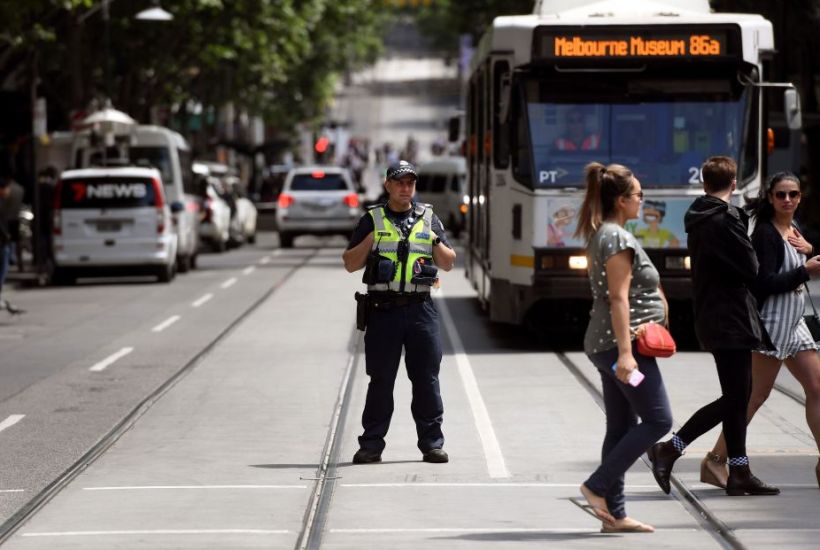The ninth of November will live on in the history of Melbourne as yet another tainted date, a day that witnessed something terrible and senseless. The city will pause for a few weeks to reflect upon the nature of the tragedy, but will eventually return to an approximation of normality – a necessary progression that signifies healing as well as defiance, an assertive refusal to compromise with evil. All physical evidence will rapidly disappear – the bloodstains will be scrubbed from the stone footpath, the pools of melted metal and plastic will be scraped away. In a matter of days no discernible visual markers will remain, with the exception of the flowers.
Anyone who spends a large amount of time in the Melbourne CBD on these days knows the dull feeling of sickness well. It begins with a text message or a call from a friend, a colleague, a family member. I’ve heard that something is happening in the city they always say – Where are you? Are you safe? In just two years there have been three such occasions.
Each time precedes two conflicting emotional states – a sharp sense of relief, an understanding that by the grace of God alone you weren’t anywhere near the scene of the incident. This is followed by the creeping sense of horror, the churning stomach, the disgust as you check the news and start to realise that some of those text messages will never be answered.
Sadiq Khan infamously said that terrorism was part of living in a big city. Since when? There are thousands of Melburnians arguing happily away on Twitter that we should hardly feel unsafe because Hoddle Street killer Julian Knight managed to murder seven people in 1987. The logic goes something like – you have no right to be upset for long, you have to accept that these awful events occur in cycles, they are inevitable. We become insignificant, we are potential future statistics in a Wikipedia entry, living our lives while heading inexorably for the next massacre. What small comfort that must be for those irrepressible determinists.
In a grotesque sense, they’re perfectly correct. There isn’t a single valid reason to believe that this won’t happen again. Melbourne, like most thriving, vibrant, cosmopolitan cities has no shortage of beautiful open public spaces. Perhaps if we fence them all in we’ll manage to subvert a few more attempts at mass murder, but as ASIO could tell you – there’s hardly a shortage of plans for the next attack. No matter how amateurish the potential perpetrator, how poorly resourced, how isolated or mentally ill they may or may not be – there is always the minute possibility that they’ll succeed.
There are those who tell us that love is the only answer, that a refusal to be consumed by hatred is the only way to overcome these unspeakable chapters in our collective memory. Thoughts and prayers, tears and resolute tributes to victims. We are told to blame only the mental illness suffered by the perperator, and to ignore whatever links to nationality or immigration status that there may be. Some, like Anne Aly, would even have us forget that terrorism is a problem at all, because far more Australians lose their lives to domestic violence. Such a perspective is beneath contempt – perhaps human lives have become something like tally marks for Aly, nothing more than a tool to pivot the political conversation towards something more palatable.
In any case, it’s increasingly difficult to remain positive. Is there any compelling proof that the situation will improve? Is there any objectively verifiable body of knowledge that suggests we’ve identified the source of the problem and have the strategies to address it? Of course not. Yet we remain, as ever, temporarily appalled yet hopelessly optimistic.
Got something to add? Join the discussion and comment below.
Got something to add? Join the discussion and comment below.
Get 10 issues for just $10
Subscribe to The Spectator Australia today for the next 10 magazine issues, plus full online access, for just $10.


























Comments
Don't miss out
Join the conversation with other Spectator Australia readers. Subscribe to leave a comment.
SUBSCRIBEAlready a subscriber? Log in